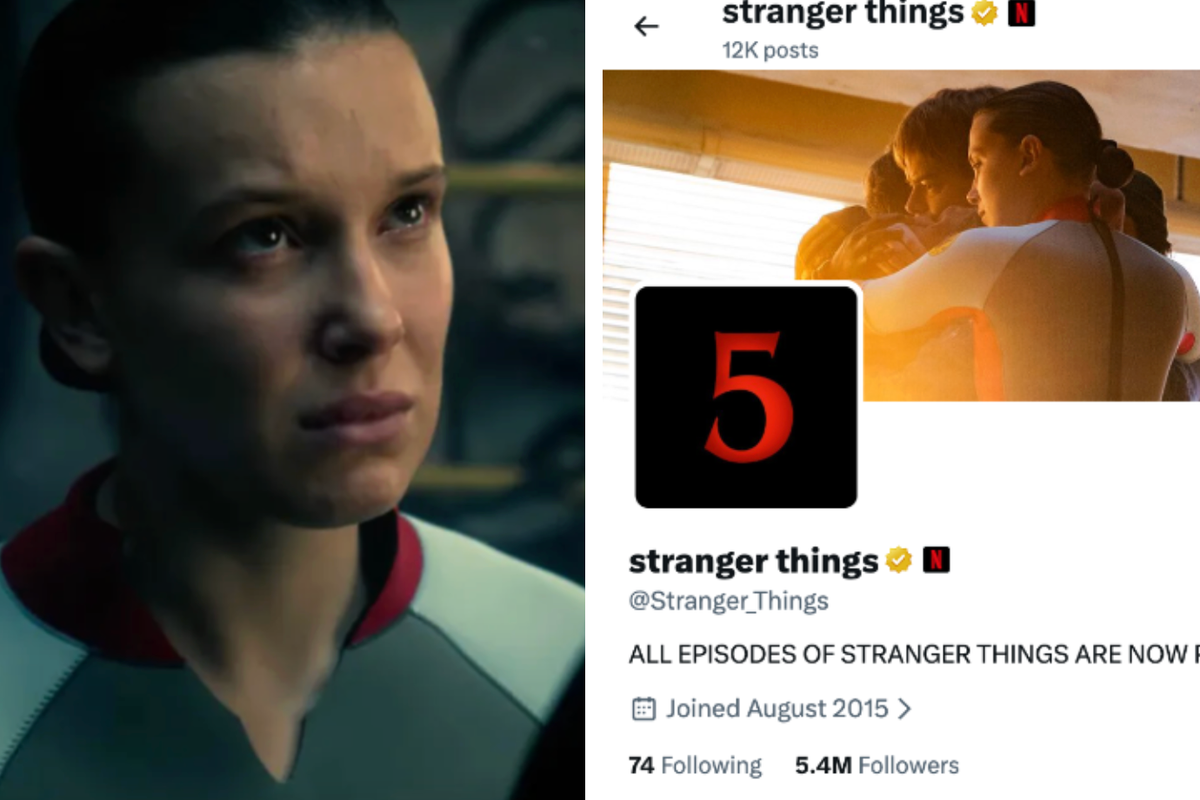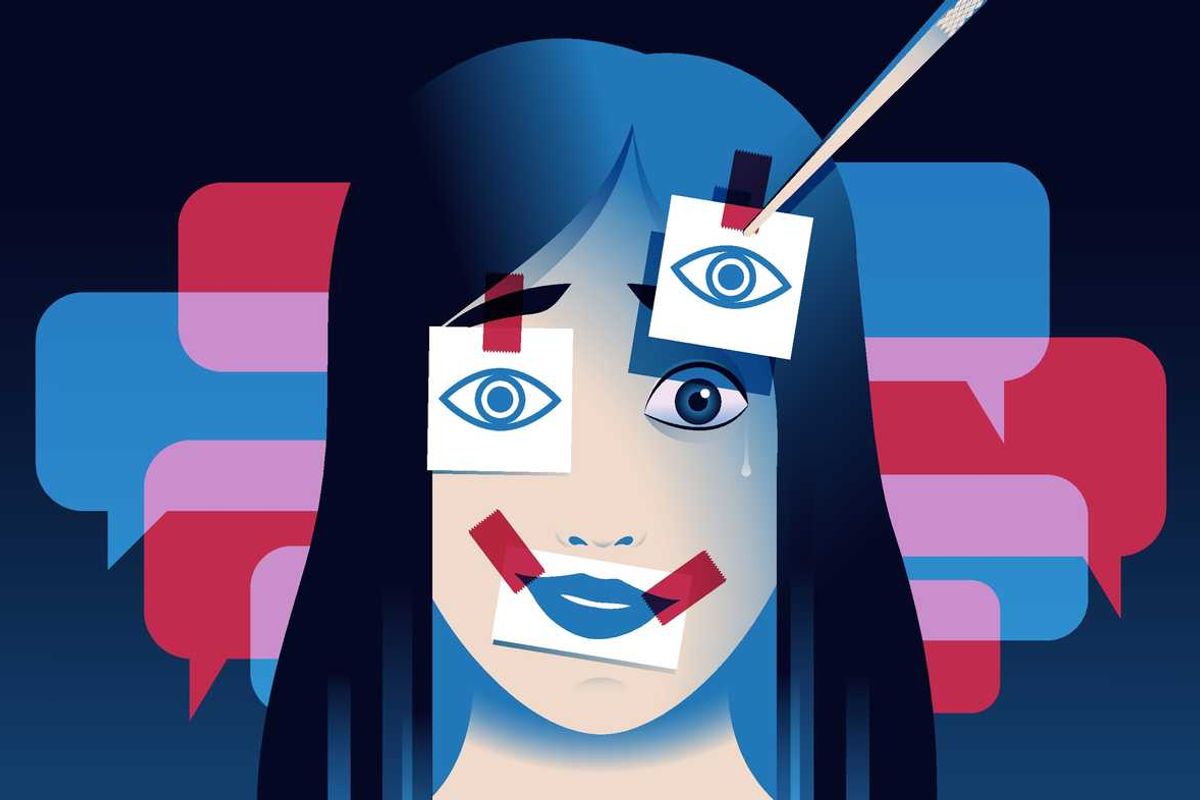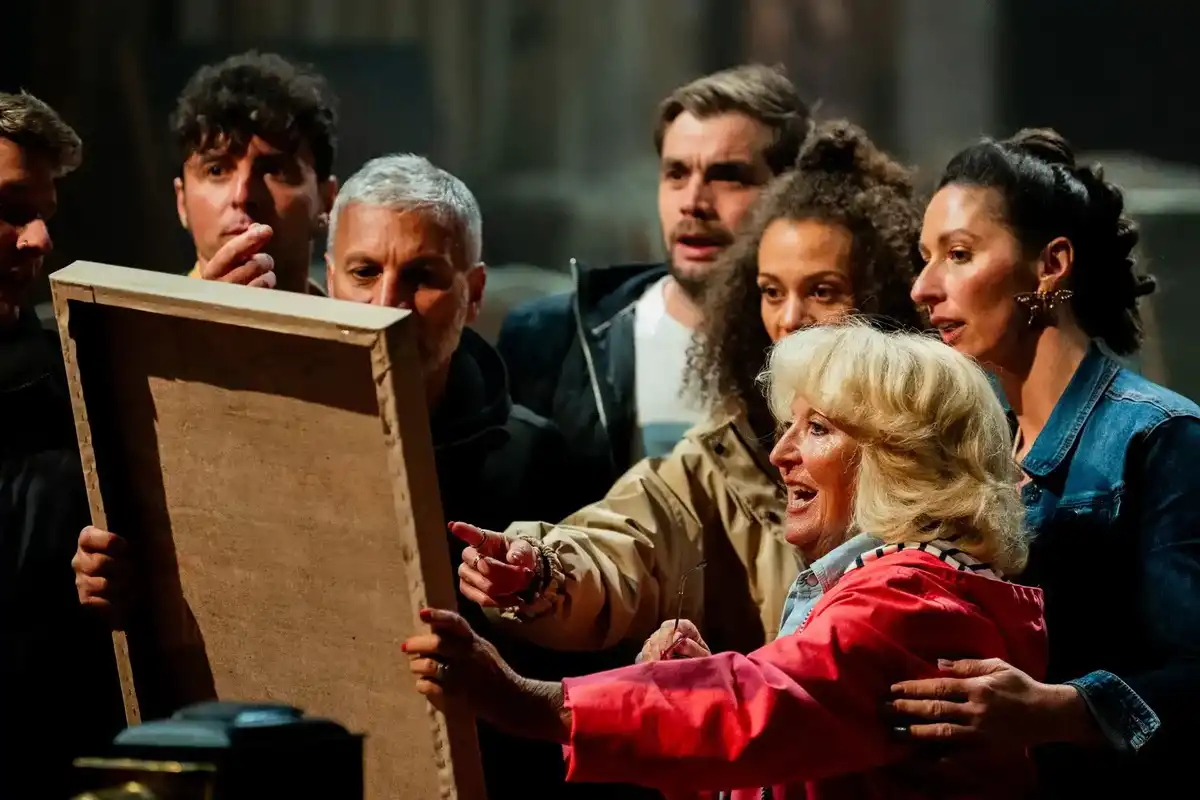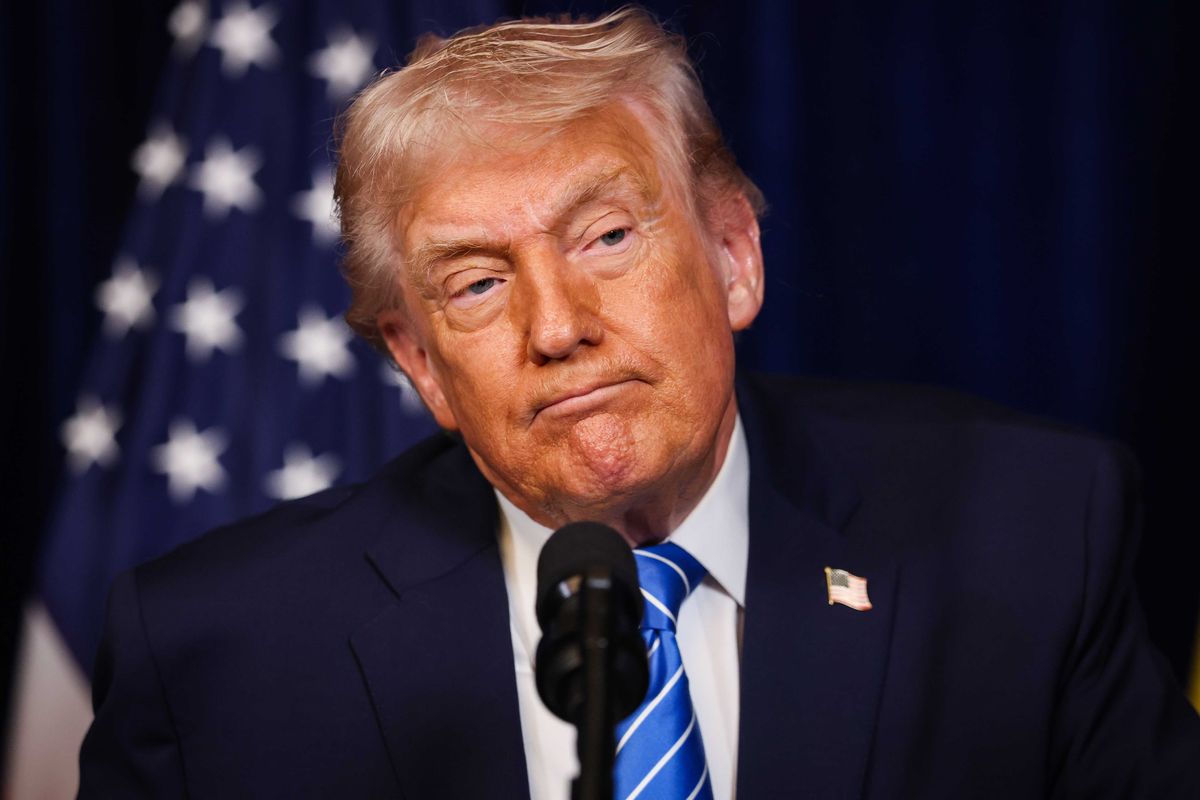Viral
Mimi Launder
May 08, 2018
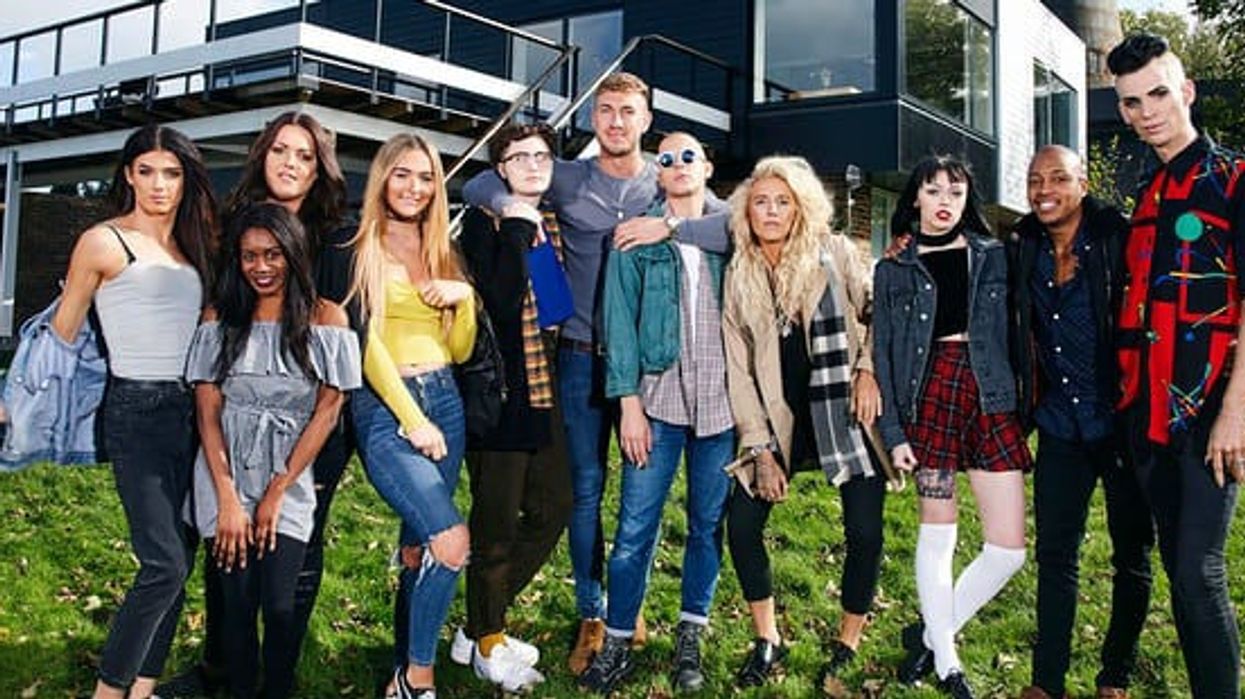
Picture:
Channel 4
Transgender campaigners and organisations have released an open letter to Channel 4 criticising Genderquake, a season of programmes touted as an exploration of the gender debate, as "counterproductive".
Signees are particularly concerned about Genderquake: The Debate, a studio discussion hosted by Cathy Newman that promises to look at what gender means in 2018. It will discuss topics including: 'what defines our gender identity', 'how that affects our rights', 'should it be easier to change gender' and 'does gender matter'.
The letter, published by indy100 in full below, argues that the debate will give legitimacy to transphobia, prejudice and the notion that trans identities are up for discussion. This concern is presumably stoked by the presence of Australian-born academic and writer Germaine Greer on the panel, who has previously said transgender women "can't be women".
Greer is a vocal holder of the contentious opinion that including trans women in women-only spaces threaten's women's rights. In her argument, she repackages trans women's right to access services as an 'invasion' and has even compared trans women to "rapists".
Such views appear to have been reignited since the government announced plans to reform the Gender Recognition Act (2004) - including removing bureaucratic stoppages in the process of changing a person's gender on their birth certificate.
Questioning whether Channel 4 is whipping up transphobia for commercial gain, the letter points out that trans women are not a threat to anyone: in countries where similar gender recognition laws are already in place, there have been no incidents of people changing their documents for malicious purposes. In fact, trans women are already entitled to single sex services and facilities under the Equality Act (2010) in the UK.
The concerns held by Greer are misplaced and misinformed, claims the letter, which urges us to fret over the injustices overwhelmingly face by trans people instead. For example, a recent study by King's College and All About Trans showed 78 per cent of participants thought that media coverage about trans people was inaccurate.
Negative media coverage won't help the shocking number of trans people who have experienced hate crime: a study conducted by Stonewall and YouGov show that two in five trans people and three in ten non binary people have experienced a hate crime or incident directly related to their gender identity in the last 12 months. Studies have also shown that the trans community suffers from high levels of suicide, where up to 45 per cent of trans youth have attempted suicide and 84 per cent have self harmed.
Panellists will also include Caitlin Jenner, who Greer said transitioned because she was jealous of the attention bestowed on the rest of the Kardashian-Jenners, as well as transgender model Munroe Bergdorf and other speakers "with a wide range of views", according to Channel 4.
A Channel 4 spokesperson told indy100:
Our changing attitudes to gender and sexuality are some of the most hotly discussed subjects of our time and the Genderquake season sets out to explore these issues from a variety of different perspectives. It includes Genderquake, featuring young people from across the spectrum of gender and sexuality sharing and discussing their personal experiences and opinions, an authored film from Transgender model and activist Munroe Bergdorf who goes on a personal journey to explore her own identity – and there will be other programmes exploring gender and sexuality in a number of different ways over 2018.
With the Genderquake debate we have sought to bring together a wide variety of voices – including inviting people from many organisations representing the trans community - to discuss the broad question of what gender means today in an open, fair and balanced way. Channel 4 is committed to providing space for debate and discussion about the big issues that are affecting society and giving the opportunity for viewers to be exposed to a range of different opinions.
The letter is published in full below and has been signed by dozens of prominent transgender and non-binary activists and campaigners - and allies - alike, including Fox Fisher, Owl, Stephanie Hirst, Juno Roche, Travis Alabanza, Kate Llewellyn, Jack Monroe and India Willoughby.
8th of May 2018
Director of Programmes
& Commissioning Editors
at Channel 4
Across the week beginning Monday 7th May 2018, Channel 4 is broadcasting several programmes under the banner of ‘Genderquake’. It purports to be a meaningful exploration of gender, including gender fluidity and transgender equality. However, core elements of the Genderquake series, particularly the live debate on 8th May 2018, appear designed to create conflict and controversy about transgender people rather than increase factual knowledge and understanding.
This letter is a collaboratively written statement signed by trans campaigners and trans organisations to voice their concern and disappointment that Channel 4 appears to be utilising and propagating societal prejudices against transgender people for its commercial gain. The design, tone and content of the Genderquake series is in stark contrast to the constructive and educational way Channel 4 has created programmes about other marginalised groups, such as disabled people.
The background to a visible backlash against trans people and trans rights
In July 2017 the government announced its plans to reform the Gender Recognition Act (2004). The proposed changes include making the process to change the gender on a birth certificate less bureaucratic and bring it into line with existing non-medicalised processes for changing gender on passports and driving licences. This means that people will no longer need a diagnosis of gender dysphoria in order to change their birth certificate. Instead, people will have to sign a statutory declaration in front of a solicitor stating the gender identity in which they are living.
The proposed simplification and de-medicalising of the Gender Recognition Act (2004) will have no effect on how trans people use single sex services and facilities or on the provisions of the Equality Act (2010). Legislation already exists to counter sexual assault or voyeurism. The reform of the Gender Recognition Act will have no effect on such legislation or punishments for assaulting people in single sex spaces or services. In fact, regardless of whether they have changed their birth certificates, trans people have been legally protected under the Equality Act since 2010 and have been using facilities and services in accordance with their gender identity for decades without incident.
Those who work on the frontline of managing single sex services including women’s refuges, have no issue with transgender individuals using such services under the existing provisions of the Equality Act (2010). Many have publicly declared their support for trans rights such as feminists in England, Ireland, Scotland, Wales and many services for women are already inclusive of trans people, such as The Scottish Women’s Aid, Rape Crisis Scotland, The Survivor’s Network and Girl Guides. In the words of Maria Miller, former Equalities Minister:
“While I absolutely believe that newspapers have a right to print what they want to, it has to be based on fact, and there is no evidence that trans women are a threat to anybody else.
“I think that if we’re going to have a debate, it needs to be based on fact. And I have sat down with Rape Crisis, I’ve sat down with Women’s Aid, I’ve sat down with Refuge, and all of them are already incredibly supportive of trans women and the appalling situations they find themselves in. And to paint this as something which is a problem for them is so wrong.”
In countries where similar laws are already in place, such as Argentina (2013), Denmark (2014), Malta (2015), Norway (2015), Ireland (2015) and Portugal (2018), there have been no incidents of people changing their documents for malicious purposes. Claims that trans people and trans women in particular are a threat to other women and girls isn’t based on factual evidence, but rather on fear mongering narratives that are fuelled by transphobia and bigotry towards trans people. The advancement of trans rights do not infringe upon the rights of women and these proposed changes to the GRA are based on best practice and supported by international organisations working in this sector.
With increased awareness of trans issues, trans people are now able to be themselves at a much younger age. This means that trans children and trans teens are able to voice their gender and get access to life saving support and services. Outcomes from gender affirmative services for trans kids are overwhelmingly positive and shows that trans kids benefit massively from being supported. This contrasts starkly with the dangers from self-harm, suicidality, and discrimination facing trans children who are not supported. Careful procedures and medical consensus for best practice continue to evolve as they have since the 1990s to support transgender children. Mistakes are not being made and children are not being forced to transition.
Since the government’s announcement to reform the GRA, there has been a visible backlash in attitudes towards trans people and trans rights, leading to increased negative media coverage. This negative media coverage has serious consequences on the well-being of trans people, with a recent study conducted at King’s College (in collaboration with All About Trans) showing 78% of participants thought that coverage about trans people was inaccurate. When seeing negative media coverage, 69% of respondents felt unhappy, 78% felt angry, 69% felt bad about society, 49% felt excluded and 41% felt frightened.
Evidence recently given to the Home Affairs Committee, and fed into the Leveson Inquiry, highlights the role broadcasters must play in the ongoing struggle against oppression of trans people through hate speech. Rather than complicitly offering anti-trans bigotry an ever-larger media platform, broadcasters are under duty to protect their viewers whilst balancing the right to free speech. According to Ofcom’s broadcasting guidelines, broadcasters are to:
To educate and inform the public.
To provide genuinely balanced and evidence based information
To take steps to provide adequate protection for the audience and uphold generally accepted standards
Not to mislead in the portrayal of factual matters including giving a disproportionate platform to harmful or offensive material
Channel 4’s Diversity event at the House of Commons
More than ever, informative, respectful and evidence based discussion on trans rights is needed. While we celebrate that Channel 4 has decided to focus on trans rights as a part of their annual diversity event at the House of Commons, we are sad to see that a highly controversial trans person from outside the UK was given the platform despite having no expertise on the topic of equality and diversity. The UK trans community has a wealth of experienced and qualified speakers that could give a more informed and relevant talk about trans rights and the experiences of the trans community in the UK. The opportunity to address the UK Parliament is rarely afforded to any trans people and it is therefore disappointing that Channel 4 appear to have prioritised controversy and celebrity over genuine representation and expertise.
The Genderquake Debate
It is vitally important that trans people are included in the creation of content about trans people, in order to combat problematic aspects and false narratives that may be directly or indirectly perpetuated. We believe that the proposed debate, and the way it is framed, may in fact be counter productive. We fear that rather than provide nuanced factual discussion, it may instead promote prejudice and misinformation that have negative consequences on the lives of trans people. We believe that:
Debates of this kind continue to create an extremely adversarial environment where trans people are forced to defend their own identities, rights and access to services against strident anti-trans campaigners who deliberately derail conversations through conflation, falsehoods and scaremongering
The vitriol often allowed to be directed at trans people during such debates negatively impacts on their mental and physical well-being
By routinely giving airtime to the same handful of extreme anti-trans campaigners rather than diverse feminists with more nuanced views, these kind of programmes do not represent the views of the larger women’s rights movement, the feminist movement or providers of women’s services
The panel participants selected and the format of these debates prioritise controversy and create heat not light. They do not progress any constructive dialogue and are held to the detriment of an already-marginalised community that is suffering due to negative media coverage and increased levels of transphobia across all areas of society
These types of debates take the focus away from the real issues, such as the fact that the trans community suffers from high levels of discrimination. A recent study conducted by Stonewall and YouGov show that two in five (41%) trans people and three in ten (31%) non binary people have experienced a hate crime or incident directly related to their gender identity in the last 12 months.
Studies have also shown that the trans community suffers from high levels of suicide, where up to 45% of trans youth have attempted suicide and 84% have self harmed. This is directly related to the poor treatment they face in society, and there is a growing body of research showing similar numbers across the board.
A change of focus
We are calling for the media to give platform to more respectful, evidence-based and positive discussions about trans issues. As mentioned above, there is an array of topics that can be discussed without centring hostile anti-trans scaremongering that will continue to harm trans people and their families. Creating engaging, balanced and well thought-out content is entirely possible and trans campaigners and organisations are more than willing to advise and be a part of the process.
We want to emphasise the importance of creating content in full cooperation with the trans community and organisations fighting in solidarity for trans equality. This will lead to more authentic, well-balanced and engaging content about trans issues that doesn’t perpetuate misinformation and inaccurate narratives based on transphobic rhetoric and attitudes.
Only then can we truly begin to eradicate transphobia, creating a fairer and more inclusive society that represents and works for all people.
Respectfully (signed)
Owl Fisher, My Genderation
Fox Fisher, My Genderation
Cara English, Gendered Intelligence
Dr Heather Peto, Transgender Officer LGBT-Labour
Kate Hutchinson, Wipe Out Transphobia
Kate Adair, SQIFF
Stephanie Hirst, Broadcaster BBC
Susie Green, Mermaids
Nathalie McDermott, On Road Media
Kate Llewellyn, All About Trans
Sarah Lennox, co-founder All About Trans
Juno Roche, writer and campaigner
Travis Alabanza, artist
Chay Brown, Trans Actual
Jay Hulme, poet
Ciara Maguire, SQIFF
Georgios Pappas, SQIFF
Keira McCormack, Gender Essence Support Services
Jane Fae, Writer and Author
Aimee Challenor, Equalities (LGBTIQA+) Spokesperson, Green Party of England and Wales
Jay Stewart, Gendered Intelligence
Tara Stone, Be:Trans Support & Development
Megan Key, activist and Equalities specialist
Lisa Severn, nGendr
Suzanna Hopwood
Sam Feeney, LGBT Officer Huntingdon CLP/Co-LGBT Officer Cambridgeshire County Branch UNISON
Amanda De Courcy Synestra’s Community Interest Company
Wales Equality Alliance
Pride Cymru
Natacha Kennedy, Goldsmiths College and UCL
Surat-Shaan Knan, Trans Organisations Network (LGBT Consortium)
Jenny List, Unite The Union SE LGBT+ Committee
Jack Monroe, Writer and Author
Lui Asquith, Trans Campaigner and Trans Campaign lead for Amnesty UK LGBTI Network
Natalie Washington, Trans Pride Brighton & Hove, nGendr.org.uk
Sarah Savage, Trans Pride Brighton & Hove
Kai Moore, Trans Pride Brighton & Hove
Zan Baldwin, Trans Pride Brighton & Hove
Nell Stockton, Chair of Barnsley Gender Equality Forum
Danni Capelin, Trans Actual
Anna Chivers, Mermaids
Victoria Gigante
Leng Montgomery, Diversity and Inclusion Specialist
Ross Semple
Jennie Kermode, Trans Media Watch
Helen Belcher, Chair of LGBT Consortium and Liberal Democrat parliamentary candidate
Dr Meg-John Barker, writer and therapist
Shon Faye, Novara Media
Justine Smithies, Chair Grampian Pride
Lewis Hancox, film maker
Tom Doyle, Yorkshire MESMAC
Dr Senthorun Raj, Lecturer in Law
Sam Hope, Notts Trans Hub
India Willoughby, journalist and TV presenter
Tara Hewitt, Trans Equality Legal Initiative & Equality & Diversity Consultant
Louise McCudden, Trans Equality Legal Initiative, and writer
Cllr Zoe O’Connell, LGBT+ Liberal Democrats, former parliamentary candidate
Sarah Brown LGBT+ Liberal Democrats
Lee-Anne Lawrance, comic artist
Yas Necati, writer
Alex Drummond, Specialist Counsellor in Gender and Sexuality
Kate Eaton
Dr Ben Vincent, academic
Cara Spence, LGBT Youth Scotland
Samathy Barratt, Vice Chair of Coventry Pride on behalf of Coventry Pride
Peter Dunne, Lecturer in Law
Amber Hope Evans, Co-founder of Not Alone Plymouth
Erin King, Co-founder of Not Alone Plymouth
Jennifer Joy
Jamie Fletcher, Theatre/Film Director and Activist
Alana Avery, On Road Media
James Morton, Scottish Trans Alliance, Equality Network
Joanne Mason, Chair of Sparkle - The National Transgender Charity
Martha Dunkley. Chair London Trans Diversity, Director cliniQ Sexual Health and Wellbeing CIC
Rose Simkins, Stop Hate UK
Sophie Cook, Labour Party
Alyssa Henley, LGBT Officer for Reading CLP and Trans Liaison Officer for Support U
Dr Jane Hamlin, President of the Beaumont Society
Samar Ziadat, SQIFF and Transmission Gallery
Dr Charlotte S McCarroll, BVMS (Hons), MSc (VetSci), PhD MRCVS Veterinary Surgeon and campaigner for trans inclusion in sport
Luke Robert Allan, Campaigner and advisor
Prof. Sally Hines, University of Leeds
Dr Samuel Hall, The Clare Project
Heather Paterson, LGBT+ writer and campaigner
Leila Zadeh, UK Lesbian and Gay Immigration Group
Roz Kaveney, poet and novelist
Claire Wardley, LGBTIQ Officer, Great Yarmouth CLP
Tracey Dixon, #RealVegan, Leeds, UK
Capt. Ayla Holdom, helicopter pilot
More: We asked 14 trans activists how cis people can be better allies in 2018
Top 100
The Conversation (0)
